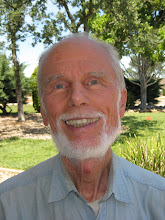First the memento mori: I'll complete the Biblical three score and ten next month, and today my dentist pulled three molars from the right side of my mouth. Two had gold crowns and the third a large mercury amalgam filling that had cracked and broken. Perhaps because I also have "moderate periodontal disease," they came out relatively easily and I only had to pay $115 each instead of the $185 listed for "surgical extraction." Because many of my gold crowns have been undermined by decay, my mid-term prospect is to extract all of them and get an upper plate. (The bottom plates tend to work poorly because the lower jaw is too flexible.)
My long-term prospect is, of course, the same as yours, death. But "since we have been justified by faith, we have peace with God through our Lord Jesus Christ," and I "rejoice in the hope of the glory of God. . . . Since we have now been justified by his blood, how much more shall we be saved from God's wrath through him!" (Romans 5:1, 2b, 9). I simply take Jesus at his word when he said, "I tell you the truth, whoever hears my word and believes him who sent me has eternal life and will not be condemned; he has crossed over from death to life" (John 5:24)
Second, Evangelical Manifesto: The steering committe includes the likes of Timothy George, Os Guinness, Rich Mouw (President, Fuller Theological Seminary), David Neff (Editor in Chief, Christianity Today Media Group), and Dallas Willard (Professor of Philosophy, University of Southern California). Charter signers include Leighton Ford, Irwin Lutzer, Jack Hayford on the one hand and Ron Sider and Jim Wallis on the other. Notable by their absence are leaders heavily involved in the culture war such as Jim Dobson and Tony Perkins of Family Research Council.
The Manifesto bills itself as "A Declaration of Evangelical Identity and Public Commitment." The infelicitous statement of the rationale for this declaration of "who we are and where we stand" seems to be saying that living together in societies riven by deep differences about religion and ideology is "one of the greatest challenges of the global era." Lack of clarity in the writing here gets the Manifesto off to a rocky start, but pluralism is certainly a problem, perhaps in ways more serious for Christian faith than they seem to think.
The Manifesto does maintain most of the theological distinctives of Evangelical faith--except for God's judgment and wrath and the Last Things, Heaven and Hell. Since these severely challenged biblical doctrines are so important for effective evangelism, this is a serious defect. Nevertheless, these worthies do maintain first of all that "Jesus Christ is fully God become fully human. . . beside whom there is no other god, and beside whom there is no other name by which we must be saved" (p. 6). This exclusive claim of Christian faith is perhaps where the spiritual battle rages most fiercely today so that point is well taken. More later.
You can find it at http://www.anevangelicalmanifesto.com/
Friday, May 9, 2008
Subscribe to:
Post Comments (Atom)

No comments:
Post a Comment